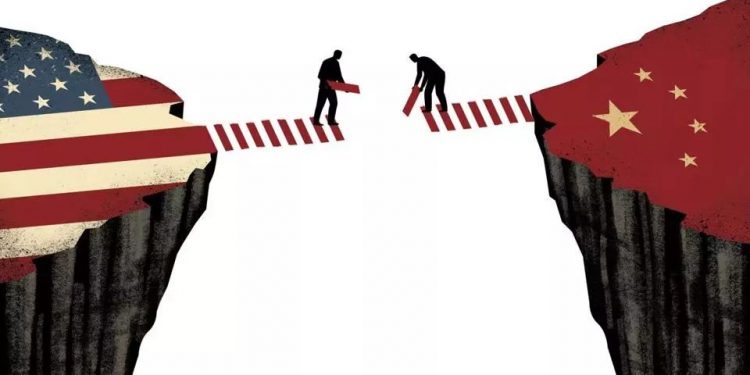Washington: The Trump administration will pursue a relationship with China that advances US interests and puts the American people first, Secretary of State Marco Rubio told his Chinese counterpart Wang Yi.
Rubio Friday spoke with Chinese Foreign Minister Wang, the first call between the two diplomats since President Donald Trump’s administration took office January 20.
“Secretary Rubio emphasised that the Trump administration will pursue a US-PRC (People’s Republic of China) relationship that advances US interests and puts the American people first,” said the State Department Spokesperson Tammy Bruce.
“The Secretary also stressed the United States’ commitment to our allies in the region and serious concern over China’s coercive actions against Taiwan and in the South China Sea,” Bruce said.
China claims most of the South China Sea. Vietnam, the Philippines, Malaysia, Brunei and Taiwan have counterclaims.
Rubio also discussed other issues of bilateral, regional, and global importance with Wang.
In the first year of Trump’s first term, the US-China ties deteriorated amid a trade war that unleashed a series of tit-for-tat tariffs.
Meanwhile, Congressman John Moolenaar, Chairman of the House Select Committee on the Chinese Communist Party and Congressman Tom Suozzi introduced the Restoring Trade Fairness Act, the first bipartisan bill that would revoke China’s Permanent Normal Trade Relations (PNTR).
A companion bill has been introduced in the Senate by Senators Tom Cotton and Jim Banks.
This comes following President Trump’s new executive order, directing the Secretary of Commerce and the United States Trade Representative to assess legislative proposals regarding Permanent Normal Trade Relations with China.
In 2000, as China prepared to enter the World Trade Organisation, Congress voted to extend PNTR status to the People’s Republic of China (PRC), hoping the Chinese Communist Party would liberalise and adopt fair trading practices.
In another development, Senator Ted Cruz introduced the Protecting Military Installations and Ranges Act to protect Department of Defence installations and training areas from American adversaries.
The bill restricts the purchase of certain property by a foreign person acting for or on behalf of Russia, China, Iran, or North Korea.
Cruz stated, “Foreign adversaries are exploiting loopholes to acquire land near our military bases and training routes, jeopardising the safety of our troops and the integrity of our operations,”
Congressman Dan Meuser has reintroduced the China Exchange Rate Transparency Act, legislation aimed at addressing China’s opaque and manipulative currency practices that undermine fair trade and global economic stability.
“China’s long-standing disregard for financial transparency and its manipulation of foreign exchange markets have tilted the playing field against US businesses and disrupted global economic norms,” said Meuser.
Meuser added, “This legislation demands accountability and insists on adherence to international standards of transparency and fairness,”.
The China Exchange Rate Transparency Act (CERT Act) directs the United States Executive Director at the International Monetary Fund (IMF) to advocate for enhanced transparency in China’s exchange rate arrangements.
PTI






































